Who We Are
US CLIVAR is a national research program with a mission to foster understanding and prediction of climate variability and change on intraseasonal-to-centennial timescales, through observations and modeling with emphasis on the role of the ocean and its interaction with other elements of the Earth system, and to serve the climate community and society through the coordination and facilitation of research on outstanding climate questions.
Our Research
The ocean plays a key role in providing a major long-term "memory" for the climate system, generating or enhancing variability on a range of climatic timescales. Understanding the ocean's role in climate variability is therefore crucial for quantifying and harnessing the predictability inherent to the Earth system. US CLIVAR-led research has played a substantial role in advancing understanding of, and skill in predicting climate variability and change.
Science and Research Challenges
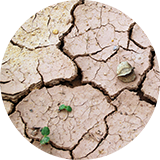
Subseasonal-to-
Seasonal Prediction

Decadal Variability
and Predictability
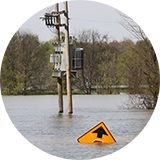
Climate Change
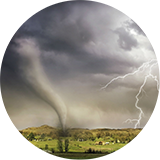
Climate and Extreme
Events

Polar Climate Changes

Climate and Marine
Carbon/Biogeochemistry

Climate at the Coasts
Announcements
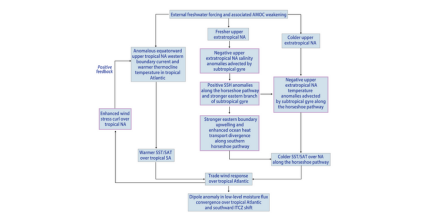
The dynamics of the Atlantic extratropical–tropical teleconnections
Joshi and Zhang (2025) demonstrate that southward advection of upper extratropical-tropical North Atlantic signals by the North Atlantic subtropical gyre plays a central role in forming the characteristic cold SST horseshoe pattern.
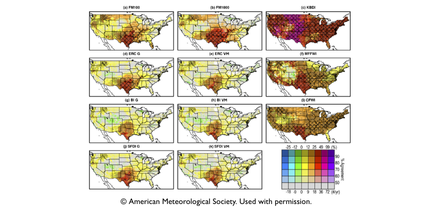
Comparing projections of multiple fire weather indices across the contiguous United States
Kessenich et al. (2025) analyzes projected changes in CONUS fire weather and compares the responses of multiple fire indices using 13 dynamically downscaled regional climate models from North America CORDEX for different periods.
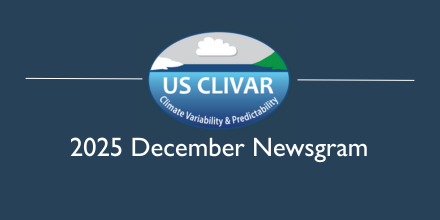
December Newsgram is Available
Stay informed with the latest news, research highlights, webinars, data sets, meetings, funding, career opportunities, and jobs for the climate science community.
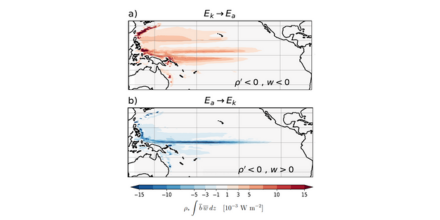
Beyond local wind: How remote forces shape Pacific equatorial upwelling
Using a local energetics framework, Brizuela et al. (2025) find that 20-50% of equatorial Pacific upwelling is not driven by local winds but by potential energy stored in the tropical thermocline.
Upcoming Webinars
Usable Climate Risk Science Webinar Series
Simona Meiler, Stanford University
John Abatzoglou, UC Merced
Join us for the third webinar in a new series, Usable Climate Risk Science, hosted by the US CLIVAR Working Group on Accelerating Research on the Scientific Foundations of Regional Climate Risk Information.
